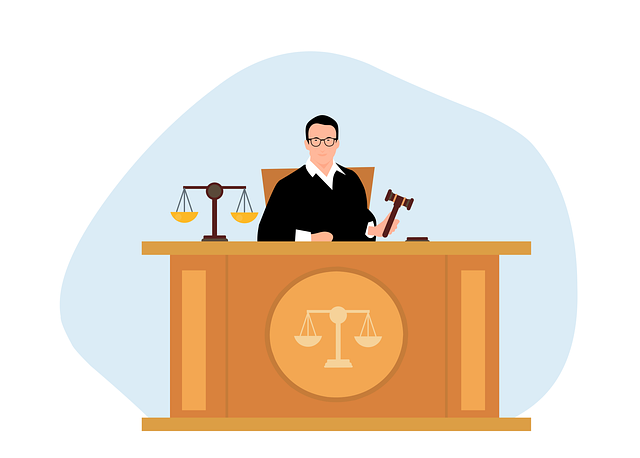Car Accident Settlement: Understanding Medical Bills’ Impact & Maximizing Recovery

In car accident cases, medical bills are a key determinant of final settlements, covering immediate…….
In the aftermath of a car accident, individuals often find themselves navigating a complex process seeking justice and financial compensation. This comprehensive article delves into the intricate world of car accident settlements, exploring every facet that contributes to this critical aspect of personal injury law. From understanding the fundamentals to analyzing global trends and technological innovations, we aim to equip readers with valuable insights into how these settlements shape lives and communities. By the end, you will grasp the significance of effective settlement practices in ensuring fair outcomes for accident victims worldwide.
Definition: Car accident settlement refers to the process by which parties involved in a vehicular collision agree on an equitable monetary compensation as a resolution to legal claims arising from the incident. It is a mutually agreed-upon alternative to prolonged litigation, allowing victims to receive redress without exhausting legal avenues.
Core Components:
Negotiation: The foundation of settlement lies in open dialogue between the victim (or their legal representative), the at-fault driver’s insurance company, and often, the defendant (if applicable). Negotiations aim to reach a mutually acceptable figure that covers damages.
Damages Assessment: Determining the value of compensation involves evaluating various factors, including medical expenses, lost wages, pain and suffering, property damage, and other relevant losses incurred due to the accident.
Release Agreement: Once a settlement is agreed upon, a release document is drafted, legally releasing the at-fault party from further liability related to the accident.
Historical Context: The concept of settling personal injury cases has evolved over time, shifting from a predominantly court-centric approach to a more cooperative one. Historically, trials were common, but rising legal costs and lengthy processes prompted a move towards alternative dispute resolution methods, including mediation and arbitration, which ultimately led to the widespread adoption of car accident settlements as a preferred resolution strategy.
Car accident settlements are not uniformly structured across borders, reflecting diverse legal systems and cultural norms. Here’s an overview of key global trends:
| Region | Settlement Practices | Unique Considerations |
|---|---|---|
| North America | Favorable to settlement due to efficient court systems and a culture promoting alternative dispute resolution. Mediation is common, leading to faster resolutions. | Strict liability laws in many states simplify the process by holding at-fault drivers accountable without needing to prove negligence. |
| Europe | Settlement varies across EU member states but generally encourages out-of-court agreements. The European Court of Justice has shaped regulations promoting efficient and fair resolutions. | Different legal traditions impact settlement strategies, with civil law countries often favoring more structured processes than common law systems. |
| Asia Pacific | Settlements are prevalent due to cultural preferences for harmony and avoiding public embarrassment. However, rapid urbanization and increasing motorization lead to complex cases. | In some countries, insurance companies play a significant role in negotiations, offering quick settlements but sometimes lacking thorough damage assessments. |
| Middle East | Known for generous compensation in personal injury cases, including car accidents. Cultural norms emphasize respect for injured parties. | The rise of specialized legal firms and insurance companies has led to more structured settlement practices, ensuring fair treatment for all stakeholders. |
| Latin America | Settlements are common, but access to justice varies across countries. Local customs influence the pace and approach to resolving claims. | In regions with underdeveloped legal infrastructure, victims may face challenges in securing proper compensation without legal representation. |
These variations highlight the need for tailored strategies to accommodate cultural, legal, and economic differences when addressing car accident settlements globally.
The economic implications of car accident settlements are far-reaching, impacting both individuals and societal welfare:
Market Dynamics: Insurance companies actively manage their exposure to risk by assessing settlement offers. They analyze historical data, legal precedents, and regional trends to determine fair compensation ranges for various types of accidents.
Investment Patterns: Settlements can influence economic growth by providing injured parties with the financial resources needed for recovery, allowing them to contribute to local economies through spending and investment.
Systemic Impact: Efficient settlement practices reduce the burden on courts, potentially lowering legal costs for all parties involved and expediting resolution, which is beneficial for both victims seeking compensation and defendants aiming to avoid prolonged litigation.
Technology has revolutionized car accident settlements, improving efficiency, transparency, and accessibility:
Online Claim Management: Digital platforms enable victims to file claims, track progress, and communicate with insurers seamlessly. These tools streamline initial claim assessment and facilitate faster negotiations.
Data Analytics for Damage Assessment: Advanced analytics helps in predicting medical expenses and rehabilitation needs based on historical data from similar cases. This technology ensures more precise settlement offers, reducing the need for lengthy court battles.
Blockchain for Transparent Records: Blockchain technology can provide a secure, immutable record of settlements, ensuring transparency and preventing fraud. Smart contracts automatically execute agreed-upon terms, enhancing trust between parties.
Artificial Intelligence (AI): AI algorithms assist in reviewing medical records, identifying patterns, and predicting outcomes, which aids in damage assessment and settlement negotiations. AI chatbots also offer initial claim assessments, providing quick guidance to victims.
Government policies and legal frameworks play a pivotal role in car accident settlements, ensuring fairness, transparency, and accountability:
Statutory Limits on Damages: Some jurisdictions impose caps on the compensation victims can receive for specific types of losses. These limits ensure predictable outcomes but may also restrict victims’ ability to recover fully for significant injuries or property damage.
No-Fault Insurance Systems: Used in several countries, these systems provide compensation regardless of fault, simplifying the claims process and ensuring victims receive support promptly. However, they may reduce the incentive for safe driving practices.
Legal Aid and Access to Justice: Governments’ investment in legal aid programs ensures that low-income accident victims can access legal representation, promoting fairness and preventing insurance companies from taking advantage of vulnerable individuals.
Regulation of Insurance Industry: Strict regulations govern insurance companies’ conduct, including their settlement practices, to protect policyholders and maintain market stability. These regulations include disclosure requirements and guidelines for handling claims.
Despite its many advantages, car accident settlement faces challenges and criticisms that require continuous improvement:
Undersized or Inaccurate Damage Assessments: One of the primary concerns is the potential for insurance companies to undervalue claims, especially in complex cases involving permanent injuries or long-term medical needs. This issue can be addressed through robust data analytics and independent medical examinations.
Lack of Transparency: Some critics argue that settlement negotiations lack transparency, with victims feeling they have limited control over the process. Implementing digital tools for claim management and clear communication strategies can enhance transparency.
Inadequate Legal Aid Access: In regions where legal aid is scarce, vulnerable accident victims may struggle to secure fair settlements without representation. Expanding legal aid programs and promoting public awareness of available resources are essential solutions.
Unfair Practices by Insurance Companies: Industry practices like using high-pressure sales tactics or offering low initial settlement amounts have drawn criticism. Stricter regulations and consumer protection measures can mitigate these issues.
Sweden’s approach to car accident settlements is a notable success story. Their “Safe Roads” initiative combines robust driver education, stringent safety regulations, and an efficient settlement system. In cases where liability is clear, the process is swift. Insurers use advanced data analytics for damage assessment, ensuring fair compensation for victims within weeks of the incident. This model has led to lower accident rates and improved public satisfaction with the legal system.
Germany’s mandatory mediation program for personal injury cases has been highly effective. Before going to court, parties must participate in mediation, where a neutral third party assists in negotiations. This process has significantly reduced the number of trials while ensuring fair outcomes. The success lies in its structured approach and the neutral mediator’s ability to facilitate dialogue, leading to settlements acceptable to both sides.
Singapore implemented a digital platform for car accident settlements, streamlining the claims process. The platform allows victims to submit claims online, enabling insurers to assess and approve or reject them promptly. This system reduces paperwork, expedites negotiations, and provides real-time updates to both parties. The result is faster compensation, improved communication, and reduced administrative burdens.
The car accident settlement landscape is poised for further evolution, driven by technological advancements and shifting societal expectations:
Artificial Intelligence (AI) Integration: AI will play an increasingly significant role in damage assessment, legal research, and settlement negotiations. Advanced algorithms can analyze complex data sets to predict outcomes with higher accuracy, benefiting both parties.
Blockchain for Secure Records: As blockchain technology matures, it is expected to be adopted more widely for maintaining secure, immutable records of settlements. This will enhance transparency, reduce fraud, and streamline dispute resolution processes.
Remote Negotiations and Virtual Hearings: The COVID-19 pandemic accelerated the adoption of remote negotiations and virtual hearings, making settlement processes more accessible and efficient. This trend is likely to continue, especially in regions with limited access to physical courts.
Emphasis on Preventive Measures: With increasing awareness of road safety issues, future settlements may place greater emphasis on preventive measures. This could involve incentives for insurers to invest in road safety initiatives or penalties for companies that fail to promote safe driving practices.
Car accident settlement is a complex yet vital aspect of personal injury law, with profound implications for victims’ lives and societal welfare. As global trends evolve and technological innovations emerge, the landscape continues to shape and reshape itself. By understanding the fundamentals, addressing challenges, and embracing emerging opportunities, stakeholders can work towards ensuring that car accident settlements are fair, efficient, and accessible worldwide.
Q: How long does a typical car accident settlement take?
A: Settlement timelines vary widely, but many cases resolve within 6-12 months. Complex cases may take longer due to extensive damage assessments, expert opinions, and negotiations.
Q: What if I disagree with the insurance company’s settlement offer?
A: If you believe the offer is insufficient, consult a lawyer. They can help negotiate or file a lawsuit if necessary. Documentation of medical expenses, lost wages, and other relevant costs will strengthen your case.
Q: Can car accident settlements be appealed?
A: Yes, in some jurisdictions, parties can appeal a settlement agreement if there was an error in law or fact. However, appeals are costly and time-consuming, so they are usually considered as a last resort.
Q: What happens if the at-fault driver has no insurance?
A: Uninsured or underinsured motorist coverage (if available in your policy) can help cover damages. You may also be able to pursue legal action against the driver personally, but this process is often more complex and lengthy.
Q: Are there any financial limitations on car accident settlements?
A: Financial limits vary by region and case type. Some jurisdictions have statutory caps on certain types of damages to prevent excessive awards. It’s crucial to understand your local laws and consult legal professionals for guidance.

In car accident cases, medical bills are a key determinant of final settlements, covering immediate…….

A car accident settlement offers compensation for negligence-related injuries and losses. Legal repr…….

After a catastrophic car accident, understanding your legal rights and gathering essential evidence…….

After a devastating car accident, families seek justice and compensation through a complex legal pro…….

The amount of a car accident settlement depends on the severity of injuries (including permanent dis…….

Pain and suffering damages in car accident settlements are crucial for compensating victims for phys…….

After a car accident, successful settlement hinges on meticulously assessing your case. This involve…….

After a car accident, prioritize seeking medical attention and documenting expenses. Contact insuran…….